#Vietnamese has the letter as well
Explore tagged Tumblr posts
Note
While I feel that hws France is hard to portray I do wonder what headcanons you have for him. Care to tell a few that come to mind?
a lot of my headcanons of francis/françois are from the british imperial + sea/east asian perspective, so with that in mind, these are some thoughts i've had:
a. françois' strengths are that he can be very charming and good at putting people at ease. he is somebody, if you ran into him somewhere, just comes off as a really interesting person. he can talk for ages about his passion for philosophy, art, literature, science and cooking without it getting boring to the listener.
b. he can be a really good lover too and is that sort of person who considers it a point of pride to make his partners enjoy his company. the sort of person who will make dinner and probably also a good breakfast for you. but one of his flaws is that he can also be pretty self-centred at times, and sometimes he uses his charisma to get out of things or simply dodge issues in his personal relationships.
c. françois, much like arthur, is in the Bad Parent club vis a vis matthew in the 17—18th centuries. where they differ however, is i feel that arthur was controlling but more...present, whereas françois was more...dismissive. matthew would get letters from arthur instructing him to do this and that, which for matthew at least acknowledged him, whereas françois might just not even write to him much at all, especially after matthew came under arthur's control.
d. françois really clicked with alfred during the revolutionary war. it helped that alfred was punching arthur in the dick, but i think that françois for all his flaws, genuinely possesses a somewhat more idealistic streak (than say, arthur imo) so that gelled well with alfred spouting all kinds of enlightenment thoughts (especially since he was also reading french writers like Montesquieu).
e. françois and lien (vietnam) have a complicated (to say the least) relationship due to the history of french imperialism over vietnam; i see francis being much younger than her (she and yao are peers in age!), so lien fitted him very much into her prior experience as an older female nation being forced to deal with 'boys playing at being empires'. lien probably shot him in the face at least once during the first indochina war, that tried to re-establish colonial rule over vietnam in the 1950s. however, i do think they can talk more cordially in more recent decades, with normalisation of ties. cooking is perhaps one topic that is a common interest—vietnamese banh mi is a kind of sandwich originating from french baguettes that incorporates local ingredients, and it's a really tasty and popular streetfood. there's also a big french-vietnamese population in paris today.
f. kiku was absolutely not impressed by monet's la japonaise, nor 'madame chrysanthème', the wildly racist and orientalist mess that Madame Butterfly was based on. it was exoticising, not flattering to him—he was however, more amenable to those of françois' artists that incorporated japanese artistic techniques in more genuine ways, or with françois' own view of aesthetics and his knowledge and interest in engineering.
g. yao, much like kiku later, was someone françois was very interested in culturally—as seen from the boom in chinoiserie when trade with china began back in the 17th century. i think french is probably one of the first european languages yao learns (besides portuguese). it's a fairly functional trading relationship—until of course, french imperialist interests began expanding in yao's sphere of influence and the opium wars.
h. i'm a fruk fan so naturally i think his love-hate relationship with arthur is one of his most significant r/ships—arthur has been a neighbour, friend, enemy, lover and everything in between. but! scotfra is another very, very long-term relationship important to him (auld alliance!). also on an EU level well, there's him and ludwig too.
i. naturally, he's also fairly fashionable, and i feel like he'll always eye himself critically even if he's going out casually, compared to way i can see arthur being fairly chill about strolling out in that questionable, ill-fitting acid green christmas sweater alfred sent him as a joke once. i also think françois probably smokes a fair bit, compared to how arthur's gotten a kick in the arse to cut back after WWII. and nowadays, he'll often just be relaxing with a cigarette on the balcony of his apartment with a book, or enjoying a day out in one of his museums.
#hws france#hetalia#hws england#hws canada#hws vietnam#hws china#hws japan#hws scotland#hetalia headcanons
123 notes
·
View notes
Note
I have a bet going that even the most saccharine fluff can actually be done well. So, a prompt for you, if you’re willing:
Mulder and Scully’s kid is an elementary student of the week. Every day that week, kid has to do a Special Assignment; Our Family, Draw a picture of the family pet, whatever. Go! (?)
“Are you shitting me?” Mulder asks, staring at the list. “I’ve read Kitty Kelley biographies less invasive than this.”
Scully leans over, perusing. “You’re so dramatic, it’s a very sweet little program! Tomorrow is his favorite book.”
She frowns then. “Oh.”
“Oh,” Mulder repeats. “The Book That Eats People.”
Scully puts her face in her hands. “We’re the Addams Family,” she groans. “Jesus.”
Mulder pats her on the back. “Maybe he’ll pick Madeline,” he suggests, without much conviction.
***
William is at the table, tongue poked between his lips. “How do you spell ‘disavowed?” he asks.
His father scowls. “William, just say I’m a writer. You don’t need all the back story.”
“D-I-S-A-“ his mother begins.
“SCULLY.”
William beams, a gap-toothed smile. His father’s crinkled eyes. His mother’s blue irises. “Go on, Scully,” he says.
***
The cat is curled in a spiral on the Lazy Susan, her glorious tail a twitchy plume.
“Can I tell them why we named her Taily-Po?” William asks.
Scully frowns. “It’s a scary story, William,” she says. “Not everyone is -“
“Yes,” says Uncle Frohike, scooping up lentils with a wedge of paratha. “It’s classic Americana. That’s patriotism in Virginia.”
Scully frowns. “William. Just tell them we found her as a kitten behind a Vietnamese restaurant.”
“There’s a hyphen,” says Uncle Langley, helpfully.
***
William pokes through the cardboard box of pictures. “Can I tell them Aunt Melissa was murdered ?” he asks. “And that it was never solved? And what do I say about Aunt Samantha, Dad?”
Scully stares beseechingly at Taily-Po, who blinks greenly in reply.
***
“Can I bring both bullets?” William asks his parents. “I can’t pick just one of your gunshots!”
Mulder considers his apple crumble. “How about your mother’s bullet and my letter from the Jerry Springer show?”
William perks up. “Yeah?”
“NO,” Scully says, over a mug of tea. “Those are not appropriate for show and tell.”
William stabs at a potato.
“Well, you have your last birthday card from Skinner,” Mulder says. “Most kids don’t get cards from the director of the FBI.”
William rolls his eyes. “It’s just a CARD,” he groans. “It’s BORING. It’s the last day, it has to be GOOD.”
Mulder ponders for a moment. He looks at Scully, the love of his life. Her fine cheeks are drawn in as she blows on her tea, her mouth a damask rose. She has a nose like a Roman queen, hair like Hestia’s tender flame. Against every odd she birthed him a strong, healthy child. He would kill for her. He would die for her.
“William,” he says to his son, not meeting her apatite gaze. “Have you heard of a show called COPS?”
132 notes
·
View notes
Text
Qunlat 3/12: Phonaesthetics and Phonotactics
⭅ Previous =⦾ Index ⦾= Next ⭆
“Shok ebasit hissra. Meraad astaarit, meraad itwasit, aban aqun. Maraas shokra. Anaan esaam Qun.”
Why does this feel different than English, or any other language you might know? phonaesthetics and orthography! The sound of a language and the way it’s written are your first introduction to it, so they’re logical places to start. Let’s dive in.

The above text is the first bit of Qunlat you ever hear, recited by Sten during his imprisonment in Lothering. It has a particular character to it: To an English-speaker, it feels like it can fit equally well with someone speaking forcefully, or gently. It also feels pretty pronounceable, coming from an English perspective. You might not know what to do with a word like “anaan”, but you can make a guess. The orthography, the way it’s written, seems relatively straightforward. And it gives you a sense of its phonaesthetics, the aesthetic qualities of how the language is spoken, including the phonology and phonotactics: what sounds are in the language, and what order you can put them in. These give a language its own identity, even when you don’t understand it.
For an English-speaker, Qunlat is an approachable constructed language. Maybe not as “pretty” as Elvhen, but it’s not giving you any tongue-twisters. I certainly liked it, when I first played DAO way back in the day. I liked it so much that I’m doing this, after all.
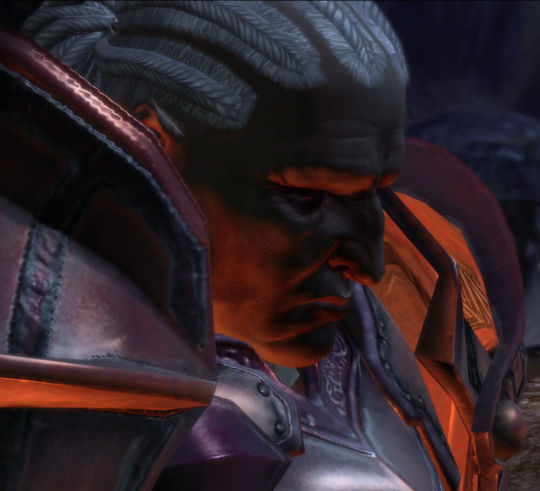
Outside of the fiction of the game, Qunlat essentially began as a written language, read aloud by pretty much just one dude: Mark Hildreth, the voice of Sten. These two sources set the template for the rest of the series, with caveats we’ll get to later. I’ll be starting with Qunlat as it’s presented to us in DAO and the main DA2 campaign (minus item names), because these two sources have the most agreement with each other.
This took an ungodly amount of time to put together. I made the mistaken assumption that the wiki was comprehensive in its documentation of the two games, and that turned out to be wrong. I ended up having to dive into the Dragon Age Toolset to find more vocabulary, and I may still have missed some–I’m not particularly agile with that thing. And the more I found, the more inconsistencies I discovered, and the harder it became to structure this post. So this will only contain a relatively brief description of each source, which is backed up by a pile of data I’ve compiled here:
In DAO and DA2, spoken Qunlat never includes the letters C, F, J, X, Y or Z. The letter W only appears in the word itwa (“to fall”), and nowhere else. In DAO and DAI, Ps only appear at the start of a couple of set phrases: Panahedan (“goodbye”, “take refuge in safety”), and parshaara (“enough”, Sten’s favorite grumpy noise). Similarly in DAO and DAI, the letter U only appears in the name Koslun, and in the context of “QU”, except for one word that’s never been mentioned since DAO: Uukluk, which describes a Qunari architectural style the rest of the games seem to have turned away from. Unlike in English, Q doesn’t need to be accompanied by a U: Qabala and Qamek work just fine without it.
Consonants follow certain phonotactic rules: This is the difference between “wing” and “ngiw”: one of them is permissible in English phonotactics, the other is not. Why? Because the start and end of a syllable are different roles that aren’t interchangeable. “Ngiw” is perfectly pronounceable, yet it would never arise within English as a result of the language’s internal rules. Vietnamese, though? Different phonotactics, and therefore that string of sounds is entirely possible. In fact, you might potentially use a word that sounds like that while describing the Qunari. Each language has its own phonotactics, and it’s a vital part of the language’s distinct feel.
When talking about individual syllables, we break them down into the onset, nucleus, and coda: the onset is the start of the syllable, the nucleus is its core, and the coda is anything that follows the nucleus. Because languages are hilarious, we have no good definition of what a syllable is, but generally you need a nucleus, and the onset and coda are optional.
Qunlat in general is far more restrictive in its phonotactics than English is, and tends toward very simple syllables. most have one onset consonant, and one vowel: a “CV” syllable. “VC” is also allowed, but it’s rarer than “CV” or “CVC”. A very, very few are “CCVC” or “CVCC”, where two consonants sit together in the onset or coda. This theoretically means the maximum size of a Qunlat syllable is “CCVCC”, but there are currently no canon words that allow this.⁽¹⁾
Qunlat also has a number of dipthongs or vowel digraphs–Either two vowels placed next to each other, or two letters used to represent a single sound. It’s hard to tell what some of these are intended to be. These are AA, AH, AY, EE, EH, and OH. The dubious word Uukluuk contains UU, but it seems to be non-standard and never used again. The AA and EH vowels can appear anywhere in a word, while EE has only been used between two consonants, and the rest are only used if they’re at the end of a word: vah, toh, and say are valid and canonical words, while ahv, oht, and ays are not possible.
Unlike English, Qunlat isn���t fond of big consonant clusters. While English can give us words like “strengths”, which is a nine letter word spelled with eight consonants and pronounced with six, The most intense Qunlat gets in the first two games is “Ashkaari”: eight letters, four consonants, three consonant sounds.⁽²⁾ As a result, it may come across as less harsh and choppy than English does to many. The only valid consonant clusters that can stand on their own are ST (Sten, ast, etc.) and the rare BR (brak). No other consonant clusters can be placed at word boundaries.
There are four consonantal digraphs in DAO and DA2: DD, SH, SS, and TH. The double S appears to be a long S, while DD could be a geminate consonant, i.e. a doubled-up consonant sound (ex. English “midday”), though it isn’t often pronounced that way in the games. SH and TH sound the same as they do in English. DD is only found in the middle of words, TH and SS never found at the start of words, while SH can appear anywhere:
DD - Viddathari SH - Shok, ashkaari, ataash SS - Hissra, iss (see note) TH - Athlok, kith, dathrasi
note: there’s no words that end in -ss in DAO or DA2, only later material.
Then there are intervocalic consonant clusters, consonants that can sit together if they’re sandwiched between two vowels (ex. Ashkaari, hissra). There’s only a few of these attested in DAO and DA2, and a few more in later material.
The written language also features a favorite of many fantasy languages: hyphens. Hyphens are used to either stitch together words that are acting as a single unit, or to separate syllables that could produce ambiguous pronunciation. Tal-Vashoth has a hyphen because Tal (“true”) and Vashoth (“grey”) are forming a single conceptual unit, meaning one who’s left the Qun. The hyphen in “Asit tal-eb” helps make it clear to the reader that it’s tal and eb, not ta and leb.
To be honest, there’s no hard and fast rules on where to use these. DAO uses them sparingly, while DA2 uses them more often. It depends on whether you feel a word or phrase requires it, to match your intended reading or aesthetic.

Speaking of “no hard and fast rules”: speaking Qunlat.
As I intimated before, the voice actors appear to have been given very loose direction at best on how to pronounce Qunlat. Not everybody’s going to be getting the full Lord of the Rings or Avatar or Dune⁽³⁾ coaching. If they’re lucky, they get a written pronunciation guide, which may be entirely idiosyncratic to the writer.
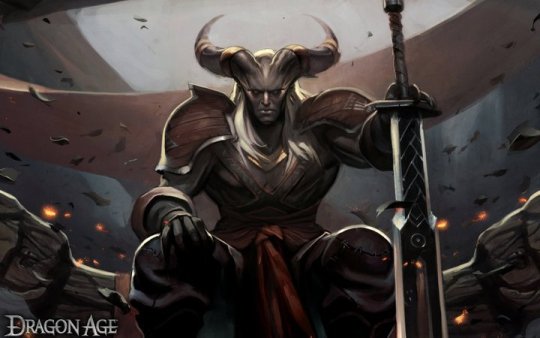
Mark Hildreth gave it a damn good try, but other voice actors like Rick Wasserman (the Arishok), Keith Ferguson (Arvaarad and various other qunari voices), and Felicia Day (Tallis) all give it their own damn good try. All of them have been native English-speakers, and so when confronted with an unfamiliar language, they… try to pronounce it like English.
This is a problem, because the English.
[A reading of The Chaos, a poem by the 19th century Dutch writer Gerard Nolst Trenité. Best listened to while reading a copy of the text, so you can really appreciate the level of understandable salt this man was working through over English.]
That’s why nobody can agree on how “Qunari” is pronounced. Is it with a hard K? A “kyu” sound? That’s supported by DAO as an intended pronunciation,⁽⁴⁾ but it’s not always followed. Sometimes it sounds like a “Kwu”, even. All of these are valid pronunciations in English, but English has a famously infuriating writing system that is composed of more exceptions than actual rules.
Most languages actually aren’t like that. English-speaking kids have to spend years learning how to write, but Finnish kids just need to learn the alphabet. Once they’ve done that, they can pretty much write any word they want, because the alphabet is so consistent with how it’s actually spoken. Hangul not only has a similar one-to-one correlation, its letters even look like how you shape your mouth when you make the sound!
But hey, at least English isn’t Tibetan. My sincere condolences to those learning the language, you’ve got your work cut out for you.⁽⁵⁾
I have my own system worked out for pronouncing the language, which I’ll make explicit later. But with regards to canon: I’ll do my best to catalog things at a later date, but all pronunciations are going to be highly variable based on the source. My best advice on this is to listen to whichever performance you like best, and use that as your template. Canon is all over the place, and you can make of it what you want.
Unfortunately, it becomes extremely all over the place in terms of spelling, as we get to everything outside of DAO and DA2’s dialog.
And my job becomes more complicated. So complicated, that I wrote an entire second post on this, then decided it was overkill. I can post it if desired, but the “Dictionary” and “Phonological Inventory” spreadsheet in the workbook of madness contains the raw facts of everything. It also provides notes on the weird differences between DA2’s spoken dialog and the item names.

Before we end this post–say you want to take what’s been presented here and run with it. You want to make new words for yourself. How would you do that?
It’s finally time to talk about one more aspect of phonaesthetics: certain sounds and sound combinations are rarer or more common than others. For example, “birtend” seems like a plausible English word, partly because it contains common English letters. “Zuquxay” doesn’t seem English, even though it’s easily pronounceable by English-speakers, because it has a bunch of rare letters in it, strung together in rare ways. Changing how frequently sounds are used in a conlang will heavily impact its overall feel.
Because I am not entirely sane, I’ve constructed a frequency chart for Qunlat. Actually, several, depending on whether you want a count of consonant clusters or just distinct sounds, and whether you want content that fits with DAO and DA2, or if you want every word ever called Qunlat.
Turns out, up to a quarter of the entire language is just the letter A.
Next time, depending on what people desire: an examination of how Qunlat begins to vary more outside of DAO and DA2’s dialog, or we move ahead to phonology. Either way, we will be properly introduced to the works of my nemesis: Philliam, a Bard!.
⭅ Previous =⦾ Index ⦾= Next ⭆

Footnotes
(1) Some may wonder “but what about a word like Vashoth, where you could consider shoth as its own five-letter syllable?” Well, it’s five letters, but only three sounds. I get into that a little further down the main text, under the subject of “digraphs”. If you’re wondering about the word ashkost, though, good choice! I’m pretty sure the word is split as ash-kost though, so I’m still right. :P
(2) For anyone wondering why “strengths” and “ashkaari” contains fewer consonant sounds than consonant letters, it’s because “ng”, “th”, and “sh” are two-letter combinations that each produce a single sound: You don’t pronounce “sing” as “sin-g”, or “the” as “t-he”, or “shush” as “s-hus-h”. Or at least I don’t, you do you.
(3) Though I should of course note that while the actors in Dune received packets of information from linguist David J Peterson, he didn’t have any direct interaction with the actors. He also didn’t coach their pronunciation of Arabic stuff like Madhi or Lisan al-Gaib, and hooboy, some of those are wobbly.
(4) When you’re tracking down Sten’s sword, the man who looted it has a surprised response that’s phonetically written out: “We're looking for a qunari sword.” “Kyun-what? I'm sorry, I... ah... I don't know what that--”. That would seem fairly unambiguous, but when listening back through samples from the games, Sten and the Arishok pronounce the word /kunɔri/, and you’d hope both their actors were coached on this one. I’ve also heard /kʷu/ pronunciations, not just /kju/. In fact, the only place /kju/ seems to be the unambiguous pronunciation is for “Qun” as a standalone word. As a conlanger who likes unambiguous romanization schemes, this annoys me greatly. Side note, if any of this is unfamiliar, stick around for when I talk more about phonology! I promise, it’s fun! You get to listen to strange little mouth noises on wikipedia, including the funniest little “üü” sound I’ve ever heard in my life!
(5) While English spelling has been afflicted with the pronunciations that were most common several centuries ago, written Tibetan has been largely unchanged for eight hundred years. The spoken language, however, has continued changing. This has created some wide divergences between the written and spoken languages: while the name of one of the central Tibetan province might be pronounced something like “Ü-Tsang”, it’s written as དབུས་གཙང, which is more literally transcribed as “Dbus-Gtsang”. If you’re writing or reading Tibetan, you just have to know that ahead of time.
But don’t worry! English might get like that one day too!
⭅ Previous =⦾ Index ⦾= Next ⭆

#dragon age#qunari#qunlat#conlangs#Tumblr completely ate the queued version of this post. I have no idea where it went. Thanks Tumblr! Glad I had a backup saved
10 notes
·
View notes
Note
returning for more book recs cause I eat your recommendations up like communion bread in an attempt to save me
Be saved my child
Also I’m going to deviate from the norm and recommend some manga, please don’t draw and quarter me I was a weeb in a past life
Paint the Wind by Pam Muñoz Ryan is a relatively easy book to read that nonetheless made me cry several times as a child. After the sudden death of her domineering grandmother, a young girl discovers she has family raising horses in the west, which she has always dreamed of.
A Bride’s Story by Kaoru Mori is a slice of life historical epic centered around both the daily life and marriage practices of Turkic Central Asia. This manga is meticulously researched and FABULOUSLY drawn. Mori is the kind of artist you only see once in a generation. I worship at her feet.
Emma also by Kaoru Mori is another work of historical fiction, this time set in England during the late Victorian period (my beloved). It follows a maid who falls in love with the son of a social climbing nouveau riche family, interspersed again with depictions of daily life of the time period.
The Right to Sex by Amia Srinivasan is a collection of feminist essays that follow the rise and dispersion of the incel movement, particularly the multi murder-suicide of Elliot Rodger. Amia explores the sexual expectations of heterosexual culture and interrogates the scripts set up that facilitate it. General trigger warning for discussions of rape and misogyny.
Second Place by Rachel Cusk is a short work of lit fic about a woman’s emotional affair with an artist who hates her. That’s kind of the best way I can describe it but it’s also about motherhood, marriage, solitude, loneliness, Covid lockdown (tangentially), and old age. The narrator invites a painter she admires to take residence in a cottage on her property for a season, and things don’t go well.
On Earth We’re Briefly Gorgeous by Ocean Vuong is part memoir part letter to his mother reminiscing on the childhood he shared with her. Ocean’s mother cannot read, and thus this letter divulges far more about Ocean’s life than he might ever actually tell her. He relates his experience growing up in poverty as a gay Vietnamese immigrant with two women marked permanently by the aftereffects of the Vietnam war.
Time Is a Mother by Ocean Vuong is his second poetry collection which follows the death of his mother. Vuong explores the relationship of writing and grief, and honestly I have a hard time summarizing any poetry collection because I’m only an amateur poetry enthusiast. Amazon History of a Former Nail Salon Worker and Dear T hit especially hard if you’ve read the book I recommend above.
Autobiography of Red by Anne Carson is a novel in verse reimagining the myth of Geryon and Hercules as the bildungsroman of Geryon, who falls in love, or the closest thing to it, with Hercules as a young man and meets him later in life only to be disillusioned about who he’s become. Not to be irreverent but this is the best mslash lovers to strangers fanfictiony Greek retelling I’ve ever read. Song of Achilles eat your heart out. (I’m reading the “sequel” red doc> right now but I’m not finished with it yet.)
A Psalm for the Wild Built by Becky Chambers on the surface is a solarpunk novella set on a world fully recovered from its Industrial Revolution, but in actuality it explores dissatisfaction with life even in the closest thing we could ever get to a utopia. A monk named Dex realizes they are no longer happy in their profession and strikes out to serve tea in the countryside, and meets a robot from the forest who wants to know if humanity needs anything. A very kind book.
I have a few others in mind but I want to recommend them specifically alongside various fic series. Hope you enjoy these!
8 notes
·
View notes
Text

(This will be constantly updated!)
About Me:
My name is Claire but you can call me Eri or Echo! I go by they/them pronouns (also found in my bio). I'm an 20 year old based in the United States.
Since I was young, art and writing have played a major role in my life. Hense, it has been a passion of mine that I'm endlessly turning back to. I'm currently studying creative writing, book publishing, and graphic design online; later hoping to study art history and print production. If I could, I'd indulge in every form of art that there is. I deeply enjoy helping other indie writers and creatives alike out in their journey, from ARC reading to showcasing their small business'!
To date, my poetry has been published in 100+ magazines and lit journals across the globe, in 14+ countries overall. I plan on releasing 4+ poetry/prose chapbooks, so keep an eye out for any updates regarding them! Moreover, I'm in the process of writing a few novels in an array of genres, sneak peaks of the stories may be shone!
You can find out more about me on my Website as well as on Instagram, Pinterest, and Spotify.
Languages I know: English (native), Vietnamese, Thai, Norwegian, Irish, Japanese, Hebrew, Czech, Indonesian, Hungarian, Hindi, Finnish, Ukrainian, Italian, Icelandic, Arabic, French, Malayalam, Swahili, and Swedish.
Languages learning: ASL, Korean, Mandarin, Urdu and Spanish.
Some of my favorite things: Rainy days, any kind of tea, flowers, exploring, the night sky, sunsets/sunrises, bookstores, cozy coffeeshops, nature walks, old books, sweaters, making art, creating playlists, volunteering, and learning about other cultures!
Fun Facts: I have undiagnosed ADHD, dyslexia, am queer identifying, gender non-conforming, and practice Shintō.
Blog:
Erie Autumn Skies will center around creativity and where I find inspiration. Expect postcard-poems, letters of prose, possible short stories, translated works of original poems, artwork, and so forth! I may post book reviews and travel photos now and then, too! This will be a writeblr blog and a personal blog! I am open to tag games, asks, etc. as long as they are writing related.
I'm open to DMs and collaborations if you ever want to chat or write together! Everything is okay to reblog. However, no resharing my work outside of Tumblr without my permission. Additionally, I'm open to requests for short poems as long as the prefered theme is included in your request and credit is given wherever the poem is shared.
WIPs:
Poetry Chapbooks
Fiction Novels
Colorblock Interlude
Book Recs:
Winterwood by Shea Ernshaw
The Littlest Tea Shop in Lower by J. Lofton
The Mirror Visitor Quartet by Christelle Dablos
Secrets & Stars by Alix Klingenberg
Sakura Park by Bailey Rae
And numerous others!
Pov My Pinterest Feed:
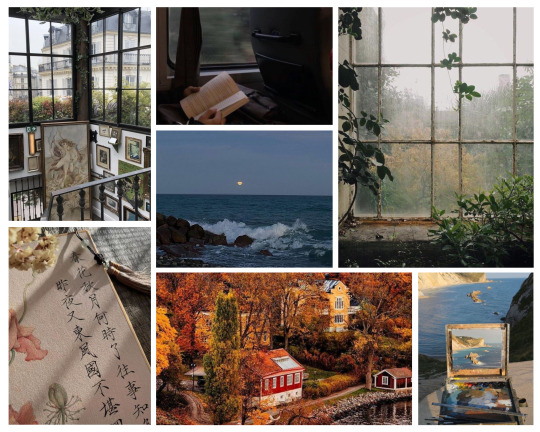
All original posts will be tagged under erieautumn! Tag games will be tagged under erieautumn tags. Asks are under erieautumn asks.
It was nice to meet you! Happy to have you along on my creative journey and hang around for as long as you'd like! 🌸
38 notes
·
View notes
Text
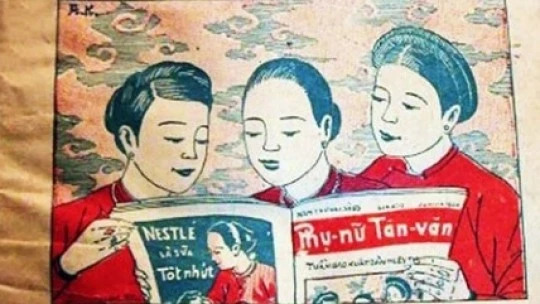
Vietnamese Literature
Since the 11th century, Vietnamese culture has been storing folklore and histories to pass down to the future generations. Early folk literature, mainly preserved in the oral form in Vietnamese, is still accessible to the layman today. They're usually about creation or origin stories, cultural icons, gods and goddesses and other supernatural beings. A well-known story is Lac Long Quân, Âu Co.
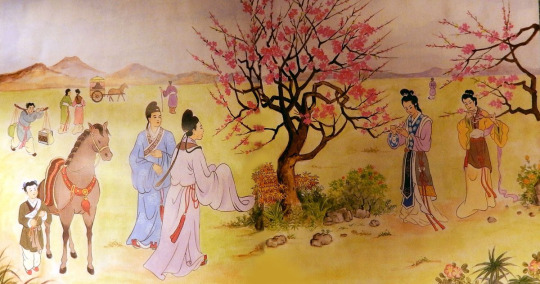
Kim Văn Kiều, or the Tale of Kiều, by Nguyễn Du (1765-1820)
Medieval literature was written in Classical Chinese, making it difficult to access for most Vietnamese today. Official proclamations and documents by the king as well as the first poetry and creative work to be written down survives in the Chinese script. These works need to be translated into colloquial Vietnamese for the general public to be able to relish them. Notable works include Gia huan ca ( The Family Training Ode), a 976-line Confucian morality poem attributed to Nguyen Trãi, written in the 1420s.


Vietnamese Literature from the 15th - 18th Century , A Letter Written in Chu Quoc Ngu, the National Script of Vietnam
The use of the 'chu quoc ngu' national script brought the written word to the masses, and made national literature accessible to a wide section of people. The script struggled to gain acceptance during the 19th century, as many people saw it as an imposition of the French colonial rule. However, with the Vietnamese independence and the vastly successful literacy programme of the government, the script was officially adopted and became the primary means of writing in the country. Prominent works include So Do by Vu Trong Phung, written in 1936.
17 notes
·
View notes
Text
A very lengthy letter before the series' departure.
Hey, everyone, Hartley here.
By June of 2023, it would be my 4th year in the Hilda community, and i'm still in disbelief that i've been active in the community for this long, as well as the animated series is coming to an end tomorrow.
I have been wanting to post this since then, but i've been extremely busy in my life, as well as my personal computer was broken for almost an entire year - hence why my activity in the community also got died down a little bit.
I have a lot of things to say to everyone, from people in the community to the people who worked on the show, as well as the past, present and future, so for the convenience of your reading, i'll divide what i want to say into chapters.
I. About me & how i got into the show ( Trigger warning: Deaths ) I've rarely talked about this to anyone, but... I live by myself, and there's a good chance i might not be around for much longer. It's sort of the reason why i got into Hilda from the first place.
I first found out about Hilda in October 2018 when i was browsing on Tumblr, but never really watched it until May 2019, when a friend of mine gave me a month free subscription of Netflix. I started to go down the list of things i wanted to watch on the platform, and when it came to Hilda, i never thought i would get fixated on the show. Well, guess where we're at now?
I was stunned by the show's colorful vibes, amazing plot writing and how the show built the characters and mythologies, especially how they portrayed the mentality of the children in the show when the kids interact with each other or with adults.
The one thing that i also extremely adore in the show is the relationship between Hilda and Johanna... because it deeply reminds me of my parents when they were still alive. I had a similar life and relationship with them. Every time i see Hilda and her mum together, it always makes me remember about my former childhood life, how kind my parents were to me, and how i wanted to be the adventurous kid that never disappoints them.
I had a pretty good life until my parents got cancer when i was 11 years old - the same age with Hilda in first & possibly second season. Things got worse since then, and they passed away a few years after that.
Now i'm pretty much alone, with a good chance that i might follow them, so if i ever just disappear without telling anything, well... at least i had a good run, i never thought i'd make it this far anyway.
The show had made a significant change on my life, as well as some of my future decisions and helped me through hard times.
It would be an understatement to say this series meant a lot for me.
Because of this, and the feeling of the show doesn't get enough attention that it deserves, i've been dedicating myself for the last few years to help the show and its community thrive.
II. About the animated series Sometimes, i feel really sad that they couldn't have done more for it. - As someone who lives in Vietnam, it's really sad to see the show lacks Vietnamese subtitles and audio language - despite there being a huge number of Netflix users in the country. Due to this, the series basically got hidden from anyone who's watching with their Netflix's interface language set to Vietnamese, which makes the show really hard to be recommended to anyone here. At the same time, many other animated series on the platform have either or both of those. - A lot of merchandise of the franchise has either never saw the day or short-lived. Hilda's GUND plushies only lived for 1.5 years, and by my count, there were 3 Hilda board games that got reported to the news, but never got released. - Hilda video games. The only official Hilda game we ever got was Hilda Creatures, and sadly, the company that made the game went defunct in April 2022, dragging Hilda Creatures along with it. - Netflix. Batch releasing the show and giving it the bare minimum marketing. The same thing happened with Jojo and we all know what happened to its hype. - The mishandling of social media pages, which led to Hilda's Facebook page got hacked for an entire month during May 2023, as well as a lack of interaction posts after season 1 to keep the community up.
I really wish the show got better treatment in a lot of stuff, but at the same time, i'm grateful for the crew's work to get the series this far. One of the directors at one point confirmed that the show got pitched to various networks like Cartoon Network, Disney, Children BBC, Nick... and no one accepted the show until Netflix came along. If Netflix never took the show in, or if it was another network that got it ( which i suspect it'd change the direction of the show by a lot ), where would we be now...?
Though the show will definitely not be reminded by Netflix every now and then as other networks do, but at least it is going out with a bang. Really wish the show would become a sleeper hit at some point in the future.
III. About the community Genuinely, it's one of the most amazing communities i've ever been in. People who are younger, same age, or even parents who are much older than me... I had amazing experiences with all of them. I've made many friends from here, which sometimes makes me wish our community would stay the same like this forever after the series ends.
Honestly, i don't know what else i could say about everyone, other than thanking you guys for making my days within the community, as well as your efforts in making it an amazing place for me and everyone else to stay in.
IV. About the future Well, i've been thinking about it quite a lot.
After the animated series ends, i'll try my best to continue sticking around in the community and do a lot more stuff for it. The franchise will still seem to continue for at least some more time, with the upcoming release of the new prequel Hilda comic series, "Hilda and Twig".
I'd be selfish for saying this, but if the current state of animations improves in the future... I'd want to see Hilda's world return as animation at some point - either following the same blue-haired girl that we all know and love, or just a spin-off from an entirely different character. It's hard to imagine how the worldbuilding we've seen in the last 12 years, where "there's so much we've never seen, so much we don't know" and "there's mystery everywhere you look" would potentially disappear after this... I really hope i would see it again, as well as be around long enough to see it.
As of now, this chapter is about to come to an end. So before it does, i want to say thanks to everyone who has been involved in this show.
Thank you Luke Pearson, the people who made Hilda the series possible, and especially - you. Whether you worked on it or are just simply a fan of the show, you have my sincere gratitude for all the great things that happened to the series in the last 4 years.
This is Hartley, and i hope everyone enjoys Season 3.
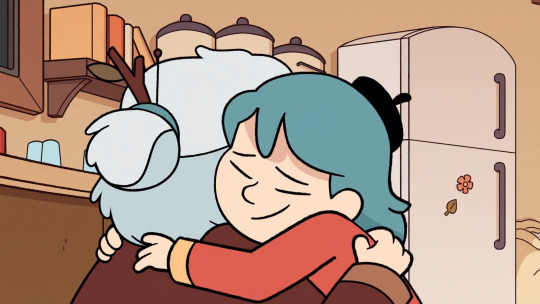
17 notes
·
View notes
Text
I started playing D&D with a friend a little over a year ago, and one of the things that we wanted to do with the campaign was to be able to see both our cultures and other cultures represented in the fantasy world that we would be playing in, because, frankly, a lot of the fantasy media we grew up with was pretty dang white. I’ve ended up pulling parts of Vietnamese culture, because I’m Vietnamese, he’s pulled from his culture, and that’s been really fun to see.
Anyway, my character, Keri, is a dwarf, and is a character I had previously played in a campaign with mostly white friends, where we weren’t thinking about including our cultures in this way. And as I was doing some prep and thinking about aspects of dwarven culture for this current campaign, I decided that instead of basing the dwarven writing system on runes, which is what Tolkien's and D&D's dwarven writing system is based on, dwarves in this setting would have a writing system inspired by cuneiform, which is a writing system from ancient Mesopotamia.
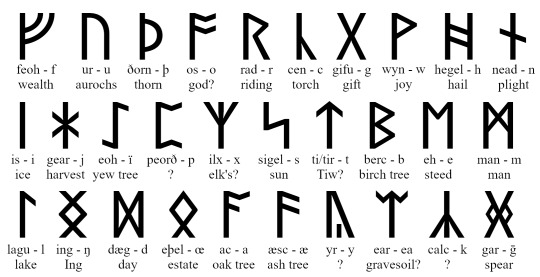
[image description: A chart which shows 30 Anglo-Saxon "futhorc" runes. It shows their names, transliteration characters, and the meanings of their names.]
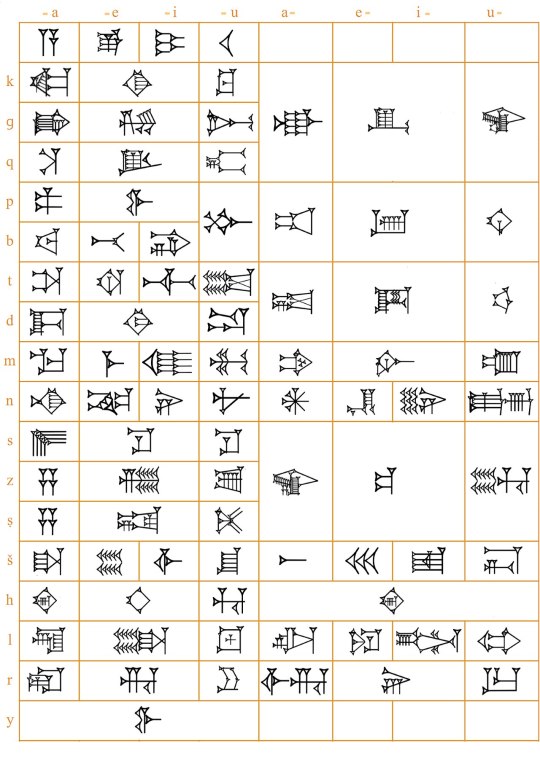
[image description: a Sumero-Akkadian cuneiform syllabary, used by early Akkadian rulers. It is a grid that has English letters on the top and left axis and shows the corresponding cuneiform characters]
I liked the visual similarities—both runes and cuneiform have very geometric, angular characters; both are written on materials that have been preserved really well—but then I wanted to make a reference sheet for myself, so I didn't have to keep on going to D&D Beyond to look up information. So I went on Canva and looked for a sufficiently angular and blocky font until I found a font called Obra Letra and made my reference sheet.
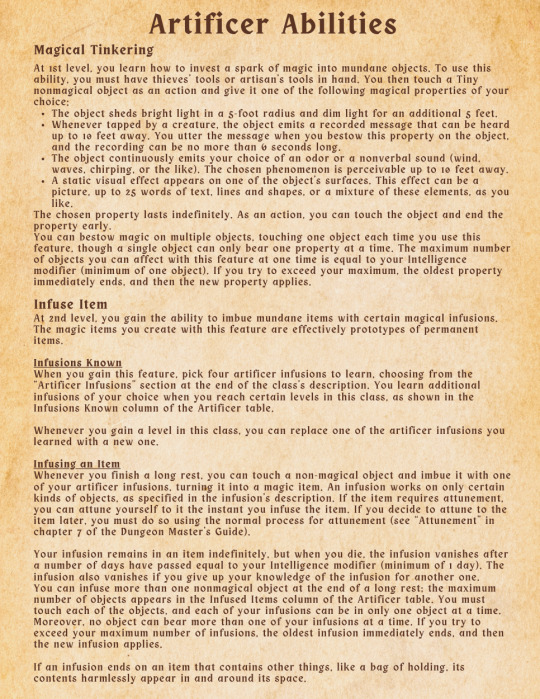
[image description: The first page of my reference sheet. It has brown angular text on a parchment background. The text has information from Tasha's Cauldron of Everything about the Artficer D&D class]
And then I got annoyed with Canva, switched to the Affinity suite of design programs, and Googled Obra Letra to see if I would be able to buy the font. And then I found out that it was inspired by vintage Filipino typography! Which is super cool!
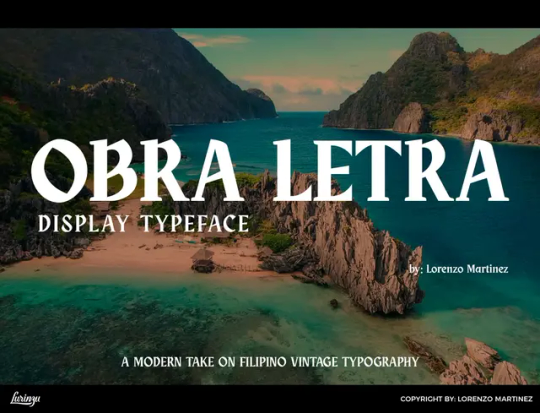
[image description: Text over an image of a bay in the Philippines. The text reads "Obra Letra Display Typeface by Lorenzo Martinez; a modern take on filipino vintage typography"]
And I currently have this document of of spells that my character can pick from, but I've been debating whether or not I use Obra Letra as the only font for all of it, or if I should find a different one for the body text and just use Obra Letra as like the font for like the spell names and stuff.
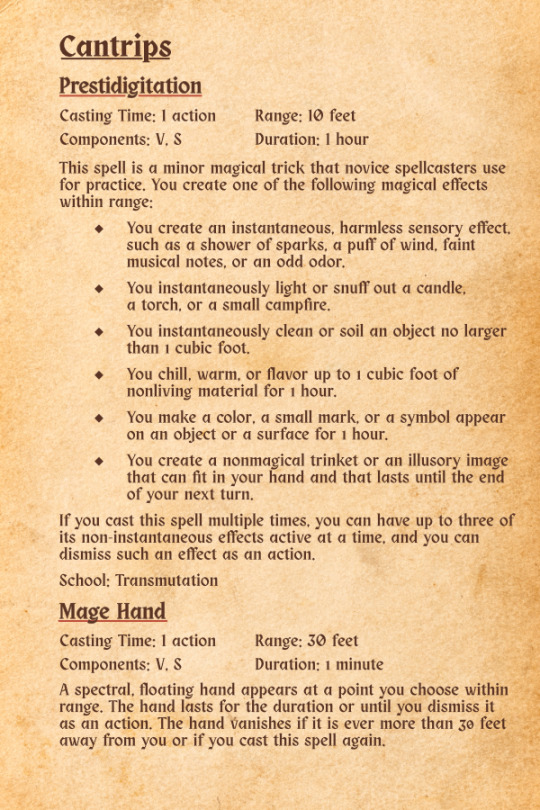
[image description: The first page of my spell description document. There is brown angular text over a parchment background. The text includes the spell information for the spells "Prestidigitation" and "Mage Hand"]
So I Googled Filipino inspired fonts, just going off of the description of Obra Letra, and found an article from Canva of Filipino inspired fonts! And then I was like, “Well, these are all like, display fonts and not quite what I'm looking for…What if I google Vietnamese inspired fonts!” And I found a website called vietnamesetypography.com that lists recommendations for fonts that can accommodate all of the tonal markings that Vietnamese has as well as resources for designing fonts with those markings in mind and a brief history of writing in Vietnam! Which is so cool!!
There’s probably a deeper conversation about Asian diaspora and being a second gen immigrant engaging with my family’s culture to be had here, but I’m just so dang excited that:
1. There’s no “right”way to worldbuild. Tolkien was a language nerd, so he built Middle Earth and all the cultures within to house the conlangs he was making. If you happen to be stuck with worldbuilding, start from the place that makes you excited to go down Wikipedia rabbit holes. I love calligraphy and typography, so that’s where I started.
2. That what you, or I create, or anyone creates will always have a part of them in it. And that when you’re able to bring all of yourself—your culture, your experience, your interests—what you create becomes even richer
8 notes
·
View notes
Note
tell me about Vinh!!
VINH LORE? VINH LORE! This is a pretty long list of ten facts so here you go! ALSO TW: a slight mention/implication of icky parents (overbearing and the opposite) and poor self worth
He is Dee's cousin and they are extremely close. They grew up in the same town, went to the same schools, and always sent each other letters when one was away. This mostly happened when Vinh was away at Pelican Town every summer while Dee was forced to do summer activities by their parents (not the fun kind). So yes, Vinh is the letter person that Dee gets all their information about farming, townspeople, and update letters throughout the year
Vinh is the only family member Dee talks to anymore, both by choice and not
Despite growing up very close, their home lives were almost completely different. Dee's parents were extremely overbearing and constantly pushing them to do more and more whereas Vinh's parents couldn't care less
Previous owner of the farm (grandpa) is only Dee's biologically. He is, however, Vinh's grandpa regardless. Vinh didn't realize this until he was like 10 and thought "wait a second, I'm Vietnamese and grandpa is a ginger.....something doesn't add up" (yes Dee is half ginger half viet)
Vinh is a teacher! When not at pelican town for the summer he is teaching kids in his hometown. Along with letters to Dee he also sends care packages for Penny to help out with Vincent and Jas any way he can
He is a very chill and laidback person, a stark contrast to Dee. He often just goes along with their schemes. When not he can be seen chatting with various people (often times Evelyn and George, Abigail, Penny, Willy, or Alex) or floating in a random lake or river (yes I said floating)
Even though he is always seen as kinda just doing his thing, some people insist he is a menace. Be it the way he always seems like he knows something you don't, or maybe it's how he will sometimes ask you a vague question, or drop something in the conversation.
He never calls people by their actual names, unless he doesn't like you. Some examples are Sam=Sonic, Sebastion=Emo Knuckles (just to spite his wish to be Shadow), Granny Evelyn=Granny Eevee, Abigail=Link (they would pretend fight in the fields and young abigail was amazing at fighting weeds)
He has extremely low self worth, doesn't fathom why anyone would want to willingly like or hangout with him. The gifts he gives he deep down views as payment to like him (regardless if he logically knows thats nots true)
Vinh is pretty good at fishing! When he was younger (first visit young) Willy taught him how to catch fish and he was hooked. He always makes time to fish with Willy, along with have Dinner with his favorite people of the valley
AND THAT'S TEN FACTS! Thanks for the ask, this is sort of a mixed bag of vibes but it gives across who he is well enough I think. Also some hidden Dee lore in there for funsies.
#stardew valley oc#it's dee 🍮#it's vinh 🌽#if you want to know more feel free to ask again#or just hope in my dms#i'm always down to talk about OCs#ALSO YOU ARE AMAZING#if you ever want to ramble about an OC or anything let me know!!!
3 notes
·
View notes
Text
Viet Film Fest 2024

Hello, dear followers. Wherever you are reading this, I certainly hope that things have been going well. For my fellow Californians, I hope you've been staying cool this scorching last few days. I know that longtime followers are not used to anything on my tumblr that hints of self-promotion (if you don't count the "My Movie Odyssey"-tagged write-ups as self-promotion, that is). So please permit me something that is dear to my heart (and the ICYMI reblogs to come).
Since 2021, yours truly has been the Artistic Director of Viet Film Fest, an Orange County, California-based hybrid film festival that showcases movies made by and/or featuring people of Vietnamese descent from all around the world. It is the largest festival of its type in the diaspora, and it is based in-person in the community where the largest population of Vietnamese population outside of Vietnam resides.
VFF 2024, the 15th edition of the festival (which used to be biannual in the early days), takes place virtually from October 5-20. It takes place in-person at the Frida Cinema in Santa Ana, California on October 11, 12, and 13.
For more information, check out the following links:
Full press release, complete with feature film synopses and short film set synopses
Full schedule (for virtual screenings, those are all listed on October 5)
Ticketing info
Facebook / Instagram / website / YouTube (yes, I know the YT needs work)
Please note that some of our films are playing in-person only. Also please note that some of our virtual offerings have geoblocking restrictions (you may not be able to access certain versions of short film sets if you are watching from outside the U.S. or North America).
The festival is part of a small, but mighty non-profit known as the Vietnamese American Arts and Letters Association (VAALA). VAALA is 501(c)3 non-profit that was founded in 1991 to provide artists of Vietnamese descent a platform to express their artistry. VFF is the most visible part of VAALA, but we also host fine art galleries and the annual Viet Book Fest.
To my followers, if you have any questions about anything regarding VFF, feel free to ask me over asks or private messages.
2 notes
·
View notes
Text
round 2 - day 2 - 5 of 8
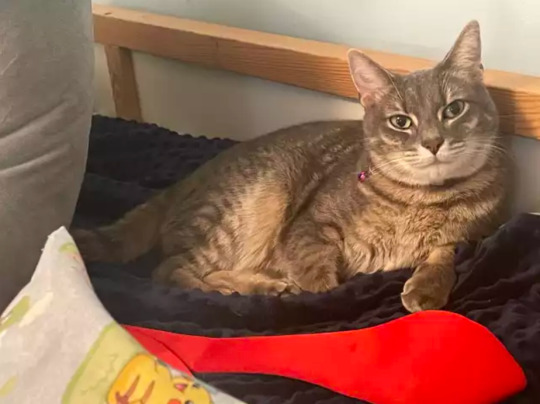
brought to you by: luna
mèo (vietnamese) vs חתול (hebrew)
info and propawganda under the cut!
mèo /mɛw/
It's a cute word which is based on the sounds that cats make ("meow" in Vietnamese is "meo")
its like cat but meow. meo -> meow!!! do you understand they made this word for cats and cats alone bc of the little noises they make
חתול (khatúl) /χaˈtul/
because it is cat! a little khatul is baby
it just fits 'em, a cat is a chatool, it just is
It sounds funny.
According to the internet it dates all the way back to the Aramic translation of some jewish texts, where it was used to refer to wild cats.
It is sometimes romanized as Khatul/Chatul (given ח is a sound that doesn't appear in English and has no letter that corresponds to it), which means that it might well be where the English for "Cat" originated from.
It has so much potential for nicknames in it, like hataltol which still means cat but its cuter
It sounds nice :) also we use khatula (female cat) when talking about literally any stray cat, even male ones that we know are male and use male pronouns for, but khatul (male cat) for any household cat even if they have a name even if they're female ect. I love language <3
22 notes
·
View notes
Text
Battleground Masculinity: Gendertroublers and Gatekeepers in Oliver Stone's Platoon (1986)
When Oliver Stone's autobiographically inspired war picture Platoon was released in the winter of 1986, it was one of the three movies that heralded a new era in the representation of the Vietnam war on the movie screen.1 Platoon set the tone for what was widely perceived as a realistic portrayal of the ordinary soldier's life in the war, a portrayal that refrained from inventing the Vietnamese as largely uncivilized and inhuman torturers, killers, and players of Russian Roulette and that took into account the cruelties and massacres occasioned by members of the United States armed forces. Time soon attributed its cover space to the movie and dubbed it "Viet Nam As It Really Was."2 Writer and director Oliver Stone was applauded for his sensitive and truthful account. The fact that his own tour of duty had inspired the film earned him the large-scale support of war veterans among the audience.
Yet Platoon is much more than a close-to-real-life depiction of a grunt's war experiences on the Vietnamese-Cambodian border. Due to its complexity as a cultural text, it is easily the one movie of its genre that has been most discussed and analysed in academia; having inspired well in excess of twenty scholarly articles on such issues as the film's Christian allegorical structure, the forces of good and evil, ritual and remembrance, the role of women, or colonialist subtexts in the film.3
Nevertheless, there remains a striking lacuna in the academic reflections on this culturally relevant filmic text, a blind spot that calls for attention.4 For while the homoerotic undertones of such homo-social genres as Western and war films have frequently been discussed, few movies have been engaged in negotiating the borders of the gender system as remarkably as Platoon.
Brief Summary
When young recruit Chris Taylor (Charlie Sheen) joins up with his unit in the Western part of Vietnam, he soon realizes that the platoon is split into two groups: the tough beer-drinkers and poker-players around Staff Sergeant Robert Barnes (Tom Berenger) and the music loving pot-smokers and dancers around Sergeant Elias Grodin (Willem Dafoe). Taylor finds himself oscillating between the toughness of Barnes and the moral integrity of Elias; and while he will come to incorporate traits of both, he is soon drawn into the den of the 'potheads.' Over the course of a few weeks, the platoon is involved in battle situations and actions of war several times, as it explores a booby-trapped bunker complex and loses some of its men; as the soldiers enquire about hidden weapons in a rustic village and come close to perpetrating a My Lai-type massacre; and as they are caught in an ambush and hit by friendly fire on patrol in the woods. Throughout these scenes, the animosities and rivalries between Barnes and Elias increase to the point where Barnes secretly murders his fellow soldier whom he perceives as a threat to successfully fighting and winning the war. In a furious climax, the platoon's position is overrun by VA forces and bombarded by the US Air Force. In the ensuing chaos, Chris takes revenge for Elias's death and shoots Barnes whom he has recognized as the responsible party. Injured, he is flown out of the battlefield.
War (Film) and the Feminine
It does not take much to realize that Platoon is doing without any female character of more than marginal importance. Where women appear at all, they figure as the victims of war atrocities and as sexual objects, or early on in the film as the absent receiver of the occasional letter home. Generally, though, Platoon presents a thoroughly male world where a lack of women is neither deplored nor, in fact, remarked upon. In the context of its genre, this consistent absence of female elements in narration and presentation is extremely rare. As has repeatedly been observed also in relation to the homo-social worlds of the generic Western movie, the occasional female character is important not only to slow down the narration and confront the male hero with moral and/or emotional conflicts; also, women characters are necessary in order to make sure that any sexual energy accumulating on the screen can find its place in socially indubitable heterosexual arrangements (cf. Esders; Neale).
Indeed, as Steve Cohan and Ina Rae Hark write in the introduction to Screening the Male (1993), "because the spectatorial look is so insistently male the erotic elements involved in the relations between the spectator and the male image have constantly to be repressed and disavowed" (3-4). Introducing a female character into the narration does, then, not only allow the (straight) male gaze to engage with a female form and avoid anxiety, it also helps disperse any doubts about the male heroes' sexual orientation and desires. Juxtaposed to a female object of desire, they smoothly assume their assigned places in a heteronormative society and are removed from the suspicion of homoerotic tendencies.5
At the same time, as philosopher Bar-On Mat-Ami has observed, especially in war films, women represent a 'rehumanizing power,' a moral force that counteracts the 'dehumanizing power' represented by the male. Where men kill and hurt and mistreat, women care and heal and cure. Without women's association with life, Mat-Ami argues, men, in their serious engagement with death, would not be able to come back home from the war and into their societies as whole human beings. If Platoon can do without any central female characters in its plot, she concludes, it is because the power to rehumanize is untypically attributed to a male character: Sergeant Elias.
Performing Masculinities, Differently
In fact, the two squads that the platoon is divided up into do not only stand for different choices of leadership and different preferences of night time entertainment; they also represent two different versions of masculinity.
On the one side, there are the 'Lifers' under the moral leadership of Sergeant Barnes: a predominantly Anglo-American circle whose members gather around beer, bourbon, and poker games. They share and enjoy heterosexual pornography and pride themselves in their physical strength. Bunny's (Kevin Dillon) proud display of his ability to bite a piece of aluminum from his beer can is one of the more curious proofs of excessive virile power. The atmosphere with the Lifers is sober as they sit in their well-lit tent, avoid physical contact with each other and preferably talk about sex and death. Barnes is the figurehead of their straight and no-nonsense masculinity: with his natural authority and self-denying courage he represents the classical, if not to say stereotypical, male hero. His association with weapons and his dedication to merciless fighting as well as his disfiguring scars6 clearly speak of his association with death and destruction.7 In the terminology of Mat-Ami, then, Barnes and the Lifers stand for a masculine, dehumanizing power. In the context of gender analysis, they represent a conventional, socially sanctioned and heteronormative way of being a man.
The pot-smoking 'Heads' around Elias, on the other hand, display a masculinity that is characterized by communal singing and dancing, by rituals of male bonding that involve uninhibited physical contact and a vague element of homoerotic seduction. Where the Lifers are basically passing time, the Heads' approach in their smoky, dimly-lit and altogether comfortable den is a considerably more dionysian one. The camera lingers on the naked, sweating bodies of dancers from different ethnicities and zooms in to a far greater closeness than it ever does with the Lifers. In this subtly homoerotic environment, Elias introduces stronger hints of queerness as he welcomes Chris into their community. Rather untypical of a courageous and responsible authority figure in a war movie, he acknowledges Chris's presence by waving at him, languidly reclined in a hammock, only half-clad, and sensually eating a banana. The ceremony of initiation that he performs later on with newly recruited Chris involves not only the passing of marihuana smoke through the phallic barrel of a gun but is also accompanied by a conspiratorial look and smile on the side of Elias and a somewhat curious yet disconcerted gaze by Chris – as though he were checking if anyone might watch and disapprove of this erotically charged moment. With its homoerotic overtones, the scene is strikingly reminiscent of the sexually coded passing of smoke through a straw in Jean Genet's gay prison art film, Un Chant d'Amour (1950), and it dissolves into a scene of soldiers relaxedly dancing with each other.
On the pictorial level, Elias's masculinity is coded as deviant and somewhat queer – especially in relation to the conventions of the genre. In excess of representing moral integrity, or, with Mat-Ami, the rehumanizing power in a dirty war, then, Elias might be considered to bear certain traits conventionally perceived as feminine: he is sensuous, emotional and caring, he promotes singing and dancing, and he cherishes romantic settings, as in the intimate conversation he has with Chris under a densely starred night sky with its obligatory shooting star.
Oedipal Structure
The film's distribution of characteristics traditionally conceived as masculine and feminine is underscored by the oedipal structure that governs the relationship among its three protagonists.8 When Chris is flown out of the battlefield, he ponders his experiences in Vietnam and observes: "I have felt like the child of these two fathers," Elias and Barnes. Given Mat-Ami's thesis, this would leave Elias in the position of the 'mother,' Barnes in the position of the 'father,' and Chris as the boy child of both. Indeed, the constellation between the characters repeats the traditional structure of desire, envy, and inclination to patricide developed by Sigmund Freud in Drei Abhandlungen zur Sexualtheorie (Three Essays on the Theory of Sexuality; 1905).
Chris and Elias soon develop a very strong bond that reverberates with a certain sexual desire (cf. the ritual of initiation discussed above). At the same time, Chris admires Barnes for his virility, his skill as a masculine, weapon-bearing leader. When, in what might be conceptualized as a primal scene, however, Chris realizes that Barnes 'fucks' with Elias, that he has in fact penetrated him with a projectile from a phallic gun, the symbolic son is rapidly possessed by the ardent wish to kill the symbolic father. By executing the patricide at the end of the film, Chris 'becomes' his father, he identifies with Barnes which enables him to dispose of the father and assume his position himself: "Only thing can get Barnes … is Barnes," Rhah (Francesco Quinn) observes in a preceding scene.
However, in a place like Stone's Vietnam, the Law of the Father does not go unchallenged, and rather than finding a stable place in the oedipal economy, Chris rises as a new brand of man, as the son of two fathers. He combines in himself the humanity and sensitivity of Elias and the toughness and violent relentlessness of Barnes. Achieving this feat, then, he does not only do justice to his oft-remarked upon association with Christ, heralding the advent of a new kind of man. Also, he follows the pattern of the classical Western hero's journey into the unknown, his confrontation with the moral darkness without and within him, and his ultimate rebirth as a more complete man, as one who can rightfully help construct a new and improved society.
Gatekeepers and Gendertroublers
The toting and wielding of the phallic gun – an instrument that, in the key scenes of the film, is presented as clearly ambivalent in its function in that it represents the possibility for both pain and pleasure – might be connoted with a certain jouissance.9 Nevertheless, the killings of Elias and Barnes are all essentially presented as jobs that need to be done, leaving the respective perpetrator disgusted, depressed, if not suicidal. Thus, after shooting Elias in the woods, Barnes resorts to getting heavily drunk. "I got no fight with a man does what he's told," he explains, "but when he don't, the machine breaks down, and when the machine breaks down, we break down. And I ain't gonna allow that."
Barnes, then, does not kill so much for the satisfaction of violent drives, but in order to guarantee the continuation of a system that he decidedly approves of. And just as he is prepared to take any necessary measure to win the war for his country, so he is ready to kill whoever provides a threat to the stability of the social machine that produces gendered – and straightly gendered – bodies for a heteronormative regime.10
"Elias is a troublemaker," Lieutenant Wolfe (Mark Moses) establishes at one point in the film – and indeed, Elias complicates and threatens to break up hegemonic gender structures. In addition to well-established elements of masculinity,11 his performance of being a man includes slippages, actions and ways of behavior that connote queerness and that do not quite fit into the heterosexual matrix. As he so frequently does in the film,12 Barnes takes responsibility in the face of these challenges to an established order and assumes the role of gatekeeper, of border patrol of the dividing line between morally sanctioned, 'correct' and deviant, 'wrong' performances of being a man. Elias, as an obvious threat to the heteronormative system, is punished in a way that exemplifies Judith Butler's observation that "we regularly punish those who fail to do their gender right" (1999: 178).13
In the case of Chris's murder of Barnes, things lie slightly differently: Chris doubts the prevailing system and wants to have it changed.14 "It's the way this whole thing works," he explains his lethargy after Elias's death. "People like Elias get wasted and people like Barnes just go on making up rules any way they want […]." For him, Barnes is revealed as (one of) the bearer(s) of a conformity proscribing system. Chris, however, has come to appreciate different ways of being and, under Elias's influence, has matured into a promoter of a far less restrictive gender system. So that eventually, Barnes himself has to die for his role and function in a system that might be about to come to an end as Chris surges from the ideological battlefield as the new, and more complete, man.
The 'child of those two fathers,' Barnes and Elias, Chris comes to integrate both their dehumanizing and rehumanizing powers. From Elias, he inherits tolerance and flexibility as much as the appreciation of the deviant and different; from Barnes, on the other hand, he takes the skills and abilities of the efficient gatekeeper. Returning home, one is bound to believe, Chris does not only carry the change that Vietnam has effected on him back into a United States society. Also, he might serve as both the constructor and the guard of a more flexible and comprehensive gender system, one that allows for deviantly doing one's gender and whose borders may, at the same time, be effectively defended against the infringement of delimiting and homogenizing forces.
Coda
Steve Cohan and Ina Rae Hark have remarked in relation to the "considerable force of the male in Hollywood cinema": "The scant attention paid to the spectacle of men ends up reinforcing the apparent effacement of the masculine as a social construction in American culture." Mainstream cinema, they claim, "screens out socially unacceptable and heterogeneous cultural constructions of masculinity" (2-3).
Platoon, while still offering itself as a realistic and authentically scripted representation of the Vietnam experience, does address as well as negotiate the construction of maleness in a heteronormative environment. The way that the film brings to the fore issues of masculinity and discusses the repressive forces inbuilt into any social system makes it stand out among mainstream films of any genre.
Christina Judith Hein, "Battleground Masculinity: Gendertroublers and Gatekeepers in Oliver Stone's Platoon (1986)," Current Objectives of Postgraduate American Studies, vol. 8, Mar. 2012
Endnotes:
1 The other two were Stanley Kubrick's Full Metal Jacket (1987) and John Irvin's Hamburger Hill (1987). Earlier films had presented the Vietnam war in the frame of a traditional Western plot (as did Ray Kellogg's and John Wayne's The Green Berets of 1968), as a psychedelic drug trip into the heart of moral darkness (Francis Ford Coppola's Apocalypse Now of 1979), or had primarily focused on the challenges that awaited both returning veterans and their home communities in the United States (the so-called homecoming films, with Hal Ashby's Coming Home of 1978, Michael Cimino's The Deer Hunter of the same year, and Ted Kotcheff's First Blood of 1982 as outstanding examples).
2 The issue appeared on January 26, 1987.
3 See the Works Consulted list at the end of this article for a complete account of scholarly articles on Platoon.
4 This essay is much inspired by the thoughts that Judith Butler has so poignantly formulated in her influential Gender Trouble: Feminism and the Subversion of Identity of 1990. It must be noted that Gender as well as Queer Studies have evolved considerably since the film's release in 1986, so that a critical look at the film and its negotiation of masculinities from today's perspective is warranted.
5 In the context of the productive power of censorship of speech in Excitable Speech: A Politics of the Performative (1997), Judith Butler remarks that "[i]n relationship to the masculine military subject, […] the norms governing masculinity will be those that require the denial of homosexuality" (131). The structural properties in films that center on homosocial communities and that portray a very conventional straight notion of masculinity (war films, Westerns, crime and mafia films) conform to this observation.
6 Over the course of his deployment in Vietnam, we learn, he has been shot and recovered seven times. Barnes is virtually deathless and can, as it turns out later on, only be killed by consent.
7 Or, as John Stone poignantly puts it: "Barnes could serve as the poster boy for anger" (82).
8 Freudian psychoanalysis and Hollywood mainstream narratives have existed in very close association, as has been remarked, among others, by Glen Gabbard. That entertainment film and psychoanalysis share the 1890s as their era of emergence in Western cultures is often taken to underscore their close connections. Interestingly, Sigmund Freud was himself approached by Samuel Goldwyn to collaborate on a love film about Anthony and Cleopatra, but he declined.
9 Again it is Bunny with his sadistic pleasure in the raid of the village who best exemplifies the excitement connoted with the use of a gun.
10 That Barnes should order Elias's men to "get back to church" when, in fact, he wants them to return to the specific ruin of a church where the platoon are regrouping, is telling in this context. His intention to get his soldiers 'back in line,' to get them to adhere to the doctrines of heteronormative gender conventions reveals itself in the grammatical slippage of his command.
11 It must not be overlooked here that in relation to conventionally approved performances of masculinity, Elias's way of being a man is excessive rather than deficient. His inclinations to queerness do not in any way stand in opposition to his qualities as an outstanding soldier but are complementary, additional. In this respect, Elias's gender performance combines a variety of differently coded traits, thus constituting an ever more subtle challenge to the fiction of a clearly discernible borderline in a binary gender system.
12 Barnes is invested in the film with the ability to see clearly through complexities and complications, and he is even credited by Chris as the man "at the eye of our rage – […] through him, our Captain Ahab – we would set things right again." Embodying the straight eye of the platoon's small-scope ersatz-society, it is Barnes's role and function to 'set things right again' where they have gone amiss. That he should draw from this strength and straighten out a queered gender order by disposing of Elias is therefore much in line with his character's setup.
13 It is important to note here, however, that whereas on the level of narration, Elias is punished for his deviant behavior, the film goes on to sanctify him, on the pictorial level particularly. The depiction of his death scene employs iconographic elements of a Christian tradition. Running from the woods and onto a clearing, pursued and repeatedly shot by enemy VA soldiers, Elias, like Christ under the cross, falls once, then twice. In a dramatic posture, he drops to his knees, flings his arms skywards, the film jumpcuts closer and closer to his face. Elias remains as in a position of crucifixion before the film further emotionalizes the sequence by repeating the moment of the last, deadly shot in slow motion. Samuel Barber's Adagio for Strings adds a note of tragedy as do the reaction shots to Chris who observes the goings-on from an elevated vantage point. Like Christ, one is bound to infer, Elias is sacrificed for a higher cause. The very sober execution of Barnes at the movie's end, mainly in full shot, stands in stark contrast to the spectacle of Elias's death. And while Barnes, tellingly, is killed after he has received a bullet wound uncomfortably close to the crotch, after an attack at his virility, that is, Elias maintains his queer position. As Laura Mulvey has noted in her influential essay, "Visual Pleasure and Narrative Cinema" (1974), it is usually the female figure that is turned into a "to-be-looked-at" spectacle on the screen – with the cutting up of her body by means of fetishizing close ups as a recurring stylistic device. Steve Neale, in "Masculinity as Spectacle" (1993), reads the violent intrusion on male bodies in war films as a way to mediate a desiring male gaze, to mark the male body as an erotic object that may be voyeuristically gazed at (16-18). In death, then, Elias evades the degradation and punishment that Barnes, in his role as gatekeeper of a heteronormative gender system, attempts to impose upon him, leaving open a number of queer strands.
14 As such, Chris himself becomes a part that does not 'function properly' and threatens to break down the machine that Barnes stands in for. The sergeant's battle crazed attempt at Chris's life just seconds before the final air strike might well be read in that vein. (On the moral plain, this scene establishes a connection between Barnes and a certain demoniacal force. Beside himself with rage, red-eyed, and ready to kill, he raises his arms in a way vaguely recalling Elias's death scene. The fiery and hellish lighting behind him, however, underscore an association with evil, as he is about to smash in Chris's head with a shovel. The opposition between Barnes and Elias is clearly stressed by these moments of Christian and Satanic contextualisations).
Works Cited
Butler, Judith. Excitable Speech: A Politics of the Performative. New York: Routledge, 1997.
—. Gender Trouble: Feminism and the Subversion of Identity. New York: Routledge, 1999.
Cohan, Steven and Ina Rae Hark. "Introduction." Screening the Male: Exploring Masculinities in Hollywood Cinema. Ed. Steven Cohan and Ina Rae Hark. London: Routledge, 1993. 1-8.
Esders, Karin. "The Return of Femininity: Romance and Reminiscences in the Western Film." Popular Culture in the United States: Proceedings of the German-American Conference in Paderborn, 14-17 September 1993. Ed. Peter Freese and Michael Porsche. Essen: Die Blaue Eule, 1994. 235-43.
Freud, Sigmund. Drei Abhandlungen zur Sexualtheorie. Wien: Deuticke, 1947.
Gabbard, Glen O. "The Psychoanalyst at The Movies." International Journal of Psycho-Analysis 78 (1997): 429-34.
Halberstam, David. "Platoon: Viet Nam As It Really Was." Time Magazine 26 January 1987: 54-62.
Mat-Ami, Bar-On. "Platoon and the Failure of War." Sexual Politics and Popular Culture. Ed. Dyane Raymond. Bowling Green: Popular P, 1990. 211-18.
Mulvey, Laura. "Visual Pleasure and Narrative Cinema." 1974. Film and Theory: An Anthology. Ed. Robert Stan and Toby Miller. Molden: Blackwell, 2000. 483-509.
Neale, Steve. "Masculinity as Spectacle: Reflections on Men and Mainstream Cinema." Screening the Male: Exploring Masculinities in Hollywood Cinema. Ed. Steven Cohan and Ina Rae Hark. London: Routledge, 1993. 9-20.
Platoon. Dir. Oliver Stone. USA, 1986.
Stone, John. "Evil in the Early Cinema of Oliver Stone: Platoon and Wall Street as Modern Morality Plays." The Journal of Popular Film and Television 28.2 (2000): 80-87.
Un Chant d'Amour. Dir. Jean Genet. F, 1950.
Works Consulted
Bates, Milton. "Oliver Stone's Platoon and the Politics of Romance." Mosaic: Journal for the Interdisciplinary Study of Literature 27.1 (1994): 101-21.
Beck, Avent Childress. "The Christian Allegorical Structure of Platoon." Screening the Sacred: Religion, Myth, and Ideology in Popular American Film. Ed. Joel W. Martin and Conrad E. Oswalt Jr. Boulder: Westview Press, 1995. 44-54.
Christopher, Renny. "Negotiating the Vietnam War Through Permeable Genre Borders: Aliens as Vietnam War Film, Platoon as Horror Film." LIT: Literature Interpretation Theory 5.1 (1994): 53-66.
Dalton, Mary and Jarrett Steve. "Platoon: The Fiction of History." Creative Screenwriting 3.2 (1996): 19-30.
Doyle, Jeff. "Missed Saigon: Some Recent Film Representations of Vietnam." Crossing Cultures: Essays on Literature and Culture of the Asia-Pacific. Ed. Bruce Bennett, Jeff Doyle, Satendra Nandan and Loes Baker. London: Skoob, 1996. 91-99.
Ecker, Michael. "Vietnam in the Genre Film: Essential Vocabulary of an Imaginary Hollywood File on Various Devices Expedient for the Success of (War) Movies." Modern War on Screen and Stage / Der moderne Krieg auf der Bühne. Ed. Wolfgang Gortschacher and Holger Klein. Lewiston: Mellen, 1997. 163-78.
Halberstam, David. "Platoon." Oliver Stone's USA: Film, History, and Controversy. Ed. Robert Brent Toplin. Lawrence: U of Kansas P, 2000. 110-19.
Hedges, Andrew. "Inter(Active)Textuality: An Examination of Platoon as a Film and as a Simulation Game." Kodikas 14.1-2 (1991): 175-83.
Helt, Richard C. "Kulturkritik or Anti-Americanism? The Reception of Recent Popular American Cinema in West Germany, with Special Focus on Platoon." Journal of Popular Culture 25.3 (1991): 189-97.
Hilbish, Melissa. "'Isn't It Just a Movie': Lessons Learned from Oliver Stone and Platoon." Reader: Essays in Reader Oriented Theory, Criticism, and Pedagogy 38-39 (Fall 1997 – Spring 1998): 42-62.
Jeffords, Susan. "Masculinity as Excess in Vietnam Films: The Father/Son Dynamics of American Culture" [with a reply from Claudia Springer]. Genre: Forms of Discourse and Culture 21.4 (1998): 487-522.
Kinney, Judy Lee. "Gardens of Stone, Platoon, and Hamburger Hill: Ritual and Rememberance." Inventing Vietnam: The War in Film and Television. Ed. Michael Anderegg. Philadelphia: Temple UP, 1991. 153-65.
Klein, Michael. "Historical Memory, Film, and the Vietnam Era." From Hanoi to Hollywood: The Vietnam War in American Film. Ed. Linda Dittmar and Gene Michaud. New Brunswick: Rutgers UP, 1990. 19-40.
Large, Ron. "Platoon: Fear, Loathing, and Salvation in Vietnam." Journal of Evolutionary Psychology 11.1-2 (1990): 116-23.
Lichty, Lawrence W. and Raymond L. Carroll. "Fragments of War: Platoon (1986)." American History / American Film: Interpreting the Hollywood Image. Ed. John E. O'Connor and Martin A. Jackson. New York: Ungar, 1988. 273-87.
Palmer, William J. "Symbolic Nihilism in Platoon." America Rediscovered: Critical Essays on Literature and Film of the Vietnam War. Ed. Owen W. Gilman Jr. and Lorrie Smith. New York: Garland, 1990. 256-74.
Porteous, Katrina. "History Lessons: Platoon." Vietnam Images: War and Representation. Ed. Jeffrey Walsh and James Aulich. New York: St. Martin's, 1989. 153-59.
Ringnalda, Donald. "Unlearning to Remember Vietnam." America Rediscovered: Critical Essays on Literature and Film of the Vietnam War. Ed. Owen W. Gilman Jr. and Lorrie Smith. New York: Garland, 1990. 64-74.
Schechter, Harold and Jonna G. Semeiks. "Leatherstocking in 'Nam': Rambo, Platoon, and the American Frontier Myth." Journal of Popular Culture 24.4 (1991): 17-25.
Schneider, Tassilo. "From Cynicism to Self-Pity: Apocalypse Now and Platoon" [with replies from Anthony R. Guneratne and Terry Dibble]. Cinefocus 1.2 (1990): 49-59.
Taylor, Clyde. "The Colonialist Subtext in Platoon." From Hanoi to Hollywood: The Vietnam War in American Film. Ed. Linda Dittmar and Gene Michaud. New Brunswick: Rutgers UP, 1990. 171-74.
#oliver stone#platoon#scholarly articles#academics#journals#academia#gender in platoon#gender studies#lgbt studies
3 notes
·
View notes
Photo
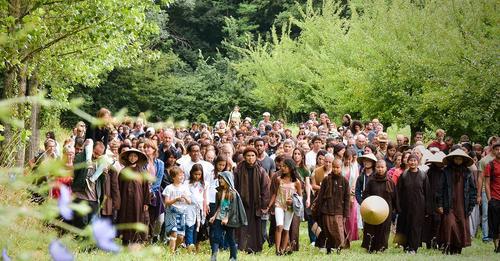
A year ago yesterday Thich Nhat Hanh died, and fellow Vietnamese immigrant and magnificent poet Ocean Vuong wrote about his teacher and sorrow, beautifully, wisely, and generously. As Ocean always does, he also celebrated the undying power of words, language, and story.
Here's his letter to the Plum Village communities:
Dear monastic and lay practitioners in our Buddhist communities far and wide—In the days following Thầy’s continuation, I have been asked by various media outlets, as a Buddhist author, to speak on this momentous occurrence in our community. But I declined—for what have I to say that Thầy’s teaching has not already solidified, already made so self-evidently clear? His practice and life’s work were always to prepare us for this moment and, in this way, prepare us for us. For our own grief in Samsara. I have always felt that to do nothing was wiser than to do something without strong intention or proper conditions in place. But when Denise Nguyen, executive Director of the Thích Nhất Hạnh Foundation, reached out asking to share directly to our community, this call made sense to me, to speak to you as one among you.
Language and sound, as we know, are one of our oldest mediums of transmission. The root of the word “narrative” is “gnarus,” Latin for knowledge. As such, all stories are first and foremost the translation of knowledge. But not only that, they are the transmission of energy. And, as Thầy taught us, energy cannot die. As a poet, this is a truth I live with every day. Because to read a few lines of Gilgamesh or The Iliad or the Tale of Kiều, is to receive the linguistic energy of a mind working up to over four thousand years ago. In this way, to speak is to survive, and to teach is to shepherd our ideas into the future, the text is a raft we send forward for all later generations. We know this because we have all clung, are still clinging, to the raft of Thầy’s and Buddha’s teachings.
How lucky we are, as a species, to have such a vehicle. I do believe that language, despite major developments in medicine and science, is still our most advanced technology. We owe it to ourselves to commit to building new rafts for all sentient beings. Our work, as was Thầy’s, is part of a long tradition of liberation that spans multiple epochs and myriad realms. Yes, energy, and even people, do not truly die. But I must speak, too, as a lay practitioner, who does not yet possess the merit to devote to a monastic life, and must admit that my heart breaks to see Thầy’s body prepared for cremation, to know his journey through death and dying, which, as the Buddhas taught us, is one of the passages of suffering all sentient beings must move through. And because I am not strong enough in my practice, I watched the procession for Thầy’s funeral with tears in my eyes, both for the beauty of the community he built but also for the immense sadness in my heart. I weep for myself and others who do not yet have the wisdom and merit to bear this pain well.
When my own mother was dying of cancer in November 2019, on her deathbed, she said to me, her voice weak, and the heat energy already fading from her limbs, Con ơi, giờ con đã biết nỗi đau này, con phải đi giúp người ta nghe. / My son, now that you know this sickness, you must take this knowledge to help people. My mother, though illiterate, memorized Vietnamese Buddhist sutras and would listen to Thầy’s teaching on her iPhone with regularity. I told her: Yes, I will not let this pain be experienced in vain. And since so many of us are feeling pain about Thầy’s continuation, I think it is helpful to see sadness, too, as energy. May we let the sadness come and teach us how to live. Let it be the mud for the lotus, as Thầy says. Let us sit with it and let it pass through us so that it might be transformed to something like love.
My mother, having learned from Thầy, knew that pain can be recycled into knowledge. Isn’t that what language is?
And I ask now, specifically of our monastics brothers and sisters, folks, and elders, as you have Xuất Gia, or “went forth,” and therefore are the true pioneers of human phenomena, I ask you humbly, to seek, in your practice (as I am sure you have already done), all the ways sadness might be transformed. And we, the lay practitioners who have “remained”, will follow your path. This is why monastics are, to my mind, the true embodiments of courage, are warriors more grounded and determined than anyone who has ever raised a sword: you have chosen to shave your heads and march into the vast unknown, beyond the cliff of human knowledge, while we remain here in relative safety and comfort, awaiting your discoveries, ready to go forth.
It is said that grief is actually love—but with nowhere to go. In a quest that might very well take up the remainder of my life in this form, I ask of myself and also of you, dear community: where shall we go, both within and outside us? Now that we have such a capacious raft, one that can hold so many, fortified by Thầy’s teaching, there might still be sadness, yes, but there is no more fear. Knowing you are out there, mining the answers when you sit down, when you follow your breath, when you make offerings, knowing you are just ahead of us, and that I can glimpse your bright robes along the road, like scraps of sunlight among the grey detritus, how can I ever be scared? But more so, how can I ever be lost?I am sad, yes. And I will be so for some time. My heart aches—but despite, or perhaps because of that, I have found you. And in you I have found myself. That is the narrative, that is the knowledge.
Yours, in hope and word, --Ocean Vuong
(pháp danh: đức Hải)
19 notes
·
View notes
Text
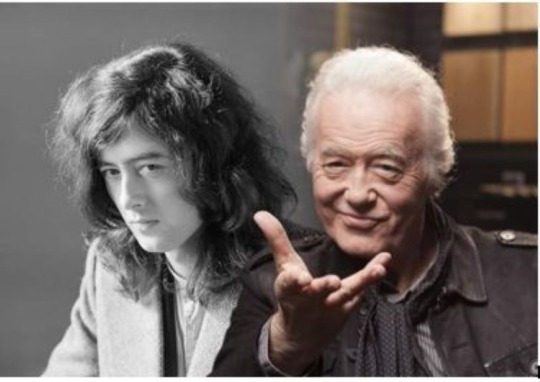
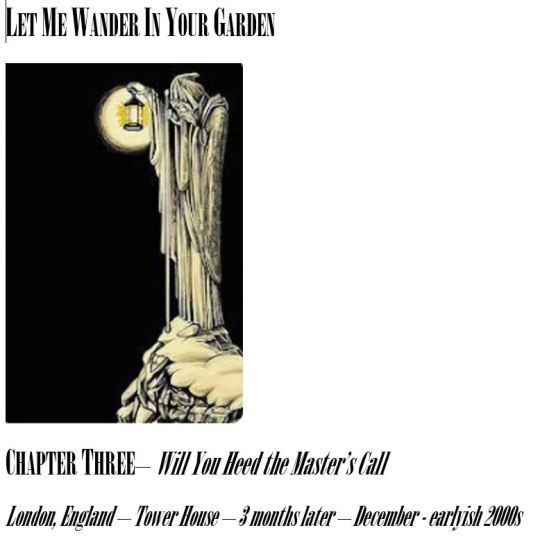
Jimmy carefully sorted the purchases from his trip to the Reading Record Fair that morning. Ross had collected him at the crack of dawn to ensure they arrived prior to the official opening. The main objective was to avoid the crowds but also to get the first choice of any rarities that were in the stacks. He had been visiting the fairs for so many years that the proprietor, George, had become a fast friend, granting him and Ross some “special” access. Periodically, George kept something aside for his mate. It was generally one or two vinyls that he knew Jimmy couldn’t refuse and almost always an obscure Zep bootleg.
George never fails to come through with some gem. And Ross!! Absolutely gutted that it was put aside for me. Ha! Maybe I’ll lend it out to him once he’s recovered. . .Seeing George always costs me a pretty fucking penny!
His hand skimmed the prize purchase of the day. He had been searching for the bootleg for at least 30 years and was now the proud owner of the Vietnamese 1970 pressing of the band’s first album. Delight overcame him as he held it.
So few of these - may be the only one. . .
He recalled the album was pressed for the troops fighting in the South Asia war raging at that time. He didn’t regret his sizable expenditure in the least.
The power of music. . . in this case, our music. . .will get you through just about anything. . .Well, let’s see what shape it’s in.
He placed the needle on the spinning record. Good Times Bad Times sounded just fine. As he lounged in his favorite chair, memories of the first momentous day – the beginning – darted through his mind, inseparable from the music. He resisted the urge to find flaws and just listened, carried off into reveries of the past. Interrupted by a vibration in his pocket, he wrangled the mobile from his jean's pocket. It was Perry.
“Hey, Jim. I’m on my way to Tower if it’s a good time. I’ve finally finished looking into Lady Jane.”
“Really! It’s taken a bit longer than a fortnight, Perry,” he chided.
“You know, Jim, it was much harder than I expected – US holidays and all.”
“Yeah, it is that time of year. Please, come on over. I’m very interested in what you’ve found.”
Jimmy sighed, returning the vinyl to its sleeve and placing it in the stack with his other purchases - to be enjoyed later. Climbing the stairs, he found what he was seeking on the library desk. He pushed the intercom for Gwyn.
“Gwynie, Perry is on his way. I’m in the library, okay. . . Great. Thanks.”
Letter in hand, he settled in the soft leather chair by the blazing hearth. His fingertips stroked the paper as they had done often over the months. The same faint. . .he didn’t know what to call it. . .connection reached out to him.
Well, well, Lady Jane, some mysteries are about to be revealed.
Footsteps sounded in the hall. “Hey, Jim. You ready?” Perry said as he entered.
Still entranced, Jimmy was slow to register another presence in the room. He finally looked up, giving his full attention to his assistant. “That was quick. Thanks for coming over. Please, sit,” nodding to the seat across from him. “So, what's her story?”
“I was able to find out quite a bit, eventually. She’s definitely unique,” Perry said as he spread the contents of his messenger bag on the table between them.
Jimmy scoffed, “Well, that could mean any number of things! Please, go on.”
He rattled off his discoveries from memory. “She’s originally from Baltimore in Maryland and is about 10 years younger than you.” He hesitated a second, glancing up to see if there would be a reaction. There was none. “She’s a solicitor who worked for Atlantic in the '70s – briefly it seems – and is now a partner in a law firm in Atlanta that represents artists – musicians mainly.”
“Hmmm. In the business?” he said eyebrows raised. He slid the letter onto the table and eased back, crossing his legs, “Doesn’t sound unstable to me. What about to you?”
“Well, no, not really, but there’s more.” He chirped as he selected a yellow folder from the others splayed on the table.
“More?” Jimmy chuckled, shifting in the chair.
“Yes, like I said, she’s a bit unusual.” He scanned his notes. “She was accelerated in her studies as a child, and graduated from her law courses at a little shy of 19 – one of the youngest to do so and one of the few women at that age, so. . .”
“That’s rather impressive,” he said, rising to tend the fire.
“Yeah, I think so, too. She passed her bar exams soon after and was a staff attorney for ATCO in New York, but only for a few months. Then. . .nothing! Poof! She vanished for an extended time. . .well, almost. . . It appears she abandoned the law thing and traveled around for over 10 years. She reappeared at Atlantic in an Atlanta satellite office in a similar capacity in the '80s. She’s been a partner in a private law firm for about 20 years. And. . .uh. . .It seems her parents were friends with Ahmet. Her father was a school-chum of his in Washington, DC, which may explain the Atlantic jobs.”
“Ahmet? No!” Jimmy turned from the hearth in disbelief. “Well, that’s certainly a bit close to home. . . So, any clue about where she was during those missing years?” He slid back into the chair, elbows planted on the armrests, fingertips tented together at his chin, listening to the new details.
“I did find a bit of a trail,” he said, pulling another paper from the folder. “It seemed she left me a few breadcrumbs," he chuckled. "She traveled the across US, staying only, at most, for a couple of years in any one spot. It appears she settled in Costa Rica longer than any other place, though.”
“Hmmm. . .a nomadic spirit. So, do you know her name – her real name, I mean? Married? Kids, that sort of thing?”
“Jane Elsinore Mott, two daughters, several grands, no marriage I could find.”
“And a free spirit to boot.” He uttered, fingertips grazing his slightly pursed lips.
“Apparently. She’s a definite fan, too. I found her on a few places online. Same screen name.”
“So, any ideas about what she’s like from her online comments?”
“Doesn’t post very often, but always thoughtful. Occasionally over the top, but rare – so far as I could find.”
“So, an intelligent, free-spirited woman - stable by all accounts- wants to meet me.” He sat up and edged forward. “Uhm. . .I know I’m going to sound like a git, Perry, but do you have a photo of her?”
“I did try, Jim, unfortunately, nothing recent. But. . .” Grinning like a Cheshire cat, he removed a glossy square from the folder. “I did find one photo that appears to be her as a teenager. Here.”
Jimmy leaned forward and took the photo, studying it, expressionless. The hand dropped to his lap as he slumped against the chair back. The pang in his chest from the studio suddenly returned.
What the fuck is that? Again! Bloody hell!
He sat up abruptly.
“You OK, Jim?” Perry rose in concern at the unexpected response from his friend.
“Yeah, yeah, fine.” Jimmy moved to the edge of the seat. “Sit. . .please. . .Uh. . .Perry, is there any way I could have met this woman back then? I mean - was she ever where the band was?”
“I really wouldn’t know if you met her somewhere on tour, Jim,” he said with a trace of friendly sarcasm. “But nothing seemed to match up with your or the band’s travels.”
“And not at Atlantic?”
“No, I checked.”
“Right, well. I need to think a bit, Perry. I’ll call you this evening.”
“Sure, Jim.” He rose and started to gather the items on the table. “Just let me know what you want to do.”
“Uh, leave all that with me, yeah?”
“Of course, talk to you later.”
“Thanks again, mate.”
Jimmy studied the papers, reading all about her for himself – from the earliest bits to the most recent. He was coming to the realization there were just too many signs to ignore. He spent most of the evening weighing what he wanted to do – if anything. He tried to busy himself with other tasks, but his thoughts returned to her.
Jane Mott, I think I must meet you. . .but definitely not within my comfort zone at all - a fan one-on-one. . .privately. . .well, maybe just a brief chat if she's here in London. . .Is it risky to willingly open myself up this way. . .to a stranger?. . .do I want to. . .you already know the answer, Jim! If for no other reason than to find out who she is and what she is.
He phoned Perry.
“Hi, sorry, it’s a bit late. I want you to get in touch with her and find out if she’s going to be in England in the near future. . .Yeah, I’m sure. . .See what the possibilities are. You have her contact information, right. . .Good. . .But, wait until after the holidays, okay? Maybe around Twelfth Night – US celebrations are over by then. She’s probably going to tell you to fuck off, but be persistent. Yeah? Thanks, Perry.”
Although it was late, Jimmy found his way to the studio. He picked up the Harmony and rewound the tape. After a bit, he strummed along adding color to his previous efforts. He pushed “record” and let the tales of Lady Jane flow into the dynamics of the song.
If we meet, I may have to play this for her. But only after I apologize for mucking about so much in her private life. Che Sera, Sera, Jane.
~~~~~~~~~~~~~~~~~
Chapter list
https://www.tumblr.com/letmewanderinyourgarden2022/701210499738714112/chapter-list-let-me-wander-in-your-garden?source=share
The Astrology (dining) room: https://youtu.be/w6hEwcTXtaE

1970 Vietnamese pressing LZI - sleeve and vinyl
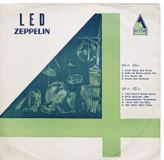

@firethatgrewsolow @foreverandadaydarling @laluxea @lzep @sassybouquetrunaway-universe @jimmysdragonsuit13 @jenyj89
#jimmy page fan fiction 2022#jimmy page#zoso#jimmy page fanfiction#silver fox jimmy#old man jimmy#led zeppelin fanfic#let me wander in your garden-chapter three#lmwing 22#let me wander in your garden 2022
14 notes
·
View notes
Note
Hi Cat 🐱 and Mouse 🐭!! May I please ask for some female face claims with medieval/fantasy resources between 21-30 who can play the sister (or half sister) of Anna Shaffer's character in The Witcher, please? Thank you so much for all your kindness and wonderful helofulness! <3 :)
Hey anon! I'm not entirely sure of her ethnicity, her mother is stated as being "mixed-race Jewish and her father is unspecified Jewish" so if anybody has information please let me know! In the meanwhile I always list people that can be found family / adopted siblings so are some people in that age range with said roles! Please note that I spent three hours looking for Jewish facecalims but unfortunately found none, if anyone has any suggestions please throw them my way! 😭
Dianne Doan (1990) Vietnamese, as well as one eighth Chinese - Vikings.
Dai Si (1991) Uyghur - The Flame's Daugther.
Kiran Sonia Sawar (1991) Pakistani - The Nevers.
Poppy Drayton (1991) - The Shannara Chronicles.
Joanna McGibbon (1991) Black British - Shadow and Bone.
Malese Jow (1991) Chinese / English, Scottish, Cherokee - The Shannara Chronicles.
Adwoa Aboah (1992) Ghanaian - Willow.
Jessica Barden (1992) - Lambs of God.
Zoë Robins (1993) Nigerian - The Wheel of Time.
Luciane Buchanan (1993) Tongan and Scottish - The New Legends of Monkey.
Anna Leong Brophy (1993) Irish, Chinese, and Kadazan - Shadow and Bone.
Eliza Butterworth (1993) - Outlander and The Last Kingdom.
Jessica Green (1993) - The Outpost.
Millie Brady (1993) - The Last Kingdom.
Beatriz Arantes (1993) Brazilian - Deus Salve o Rei.
Alexandra Bortich (1994) - Vikings.
Ivana Baquero (1994) - The Shannara Chronicles.
Shalom Brune-Franklin (1994) Mauritian / English - Cursed.
Imogen Waterhouse (1994) - The Outpost.
Jessie Mei Li (1995) Hongkonger / English - is a gender non-conforming woman who uses she/they.
Izuka Hoyle (1996) Nigerian / Scottish - The Outpost.
Ellie Bamber (1997) - Willow.
Madeleine Madden (1997) Gadigal, Eastern Arrernte, Kalkadoon and White - The Wheel of Time.
Morgan Holmstrom (1997) Metis of Cree descent, Ilocano Filipino, and Sambal Filipino - Outlander.
Amita Suman (1997) Bhojpuri Nepalese - Shadow and Bone, The Outpost.
Annabelle Davis (1997) - has spondyloepiphyseal dysplasia congenita - Willow.
Amber Midthunder (1997) Hunkpapa Lakota, Hudeshabina Nakoda, Sissiton-Wahpehton Dakota, Thai-Chinese, and White - Prey.
Bethany Antonia (1997) Black British - House of the Dragon.
Ruby Ashbourne Serkis (1998) Armenian, English, Iraqi Arab / English - The Letter for the King.
Jessica Reynolds (1998) - Outlander.
Erin Kellyman (1998) Afro-Jamaican / Irish - is a lesbian - Willow.
3 notes
·
View notes
Text
so I'm currently mooching off of my best friend's mom for Netflix
problem is, their account got hacked by someone using Vietnamese subtitles (remember that for later,) and the hacker decided to make my profile their profile. and it was fuckin' up my algorithms. I was going in and deleting my viewing history every day to get rid of what they watched.
I told my friend, who told her mom, but that turned into a huge fiasco b/c her mom isn't super tech savvy and has a hard time getting back into her Netflix account on her Smart TV after the password is changed. but whatever, they changed it - only by a letter or two, though, to make remembering the password easier on my friend's mom.
well the hacker got back in immediately b/c the password was so similar. I told my friend again. she was like "this is a pain in the ass and I don't think my mom cares about the security risk, can we just deal with this later"
and I was like "sure but first lemme try something"
so I made a new Netflix profile, went to Google Translate, typed in "thieves use this one" in Vietnamese, got the translation, and made that the name of the new profile.
annnnnd hilariously, that worked! they stopped using my profile! and started using the one I made for them!
solidarity amongst mooches!
5 notes
·
View notes